Table of Contents
Introduction
Marketing is evolving, and Artificial intelligence in marketing is leading the charge. If you haven’t yet considered integrating artificial intelligence into your marketing strategy, you’re already behind. But don’t worry—this guide will help you understand how Artificial intelligencein marketing is revolutionizing the industry and how you can stay ahead of the curve.
What is AI in Marketing?
Artificial Intelligence (AI) in marketing refers to the use of machine learning algorithms and data analytics to enhance marketing strategies. It automates processes, personalizes customer experiences, and predicts future consumer behaviors.
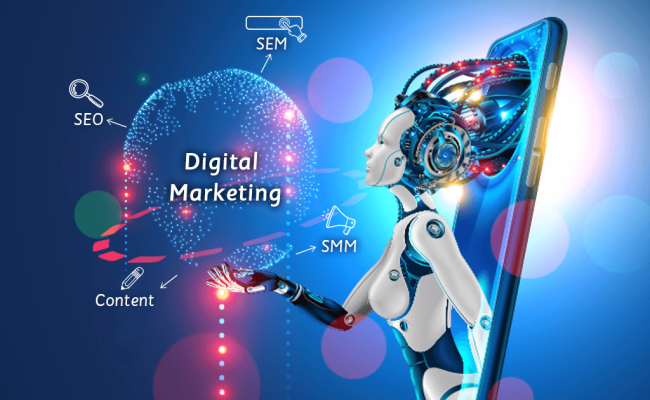
Why is AI in Marketing Important?
Artificial intelligence in marketing is transforming the field by making it more efficient and effective. Here are a few reasons why Artificial intelligence in marketing is crucial:
– Personalization: Artificial intelligence in marketing can tailor messages to individual preferences.
– Efficiency: Automating repetitive tasks with Artificial intelligence in marketing saves time and resources.
– Insights: Artificial intelligence in marketing provides deep insights into customer behavior and market trends.
Key AI Technologies in Marketing
Several AI technologies are making waves in the marketing world. Let’s dive into some of the most impactful ones:
Machine Learning
Machine learning is at the heart of Artificial intelligence in marketing. It enables systems to learn from data and improve over time without human intervention.
Natural Language Processing (NLP)
NLP helps machines understand and interpret human language. It’s used in chatbots, sentiment analysis, and content generation—key components of Artificial intelligence in marketing.
Predictive Analytics
Predictive analytics uses historical data to predict future outcomes. It’s invaluable for forecasting trends and consumer behavior, making it a cornerstone of Artificial intelligence in marketing.
Chatbots and Virtual Assistants
Chatbots and virtual assistants provide 24/7 customer support and engage with users in real-time, improving customer satisfaction and embodying the efficiency of Artificial intelligence in marketing.
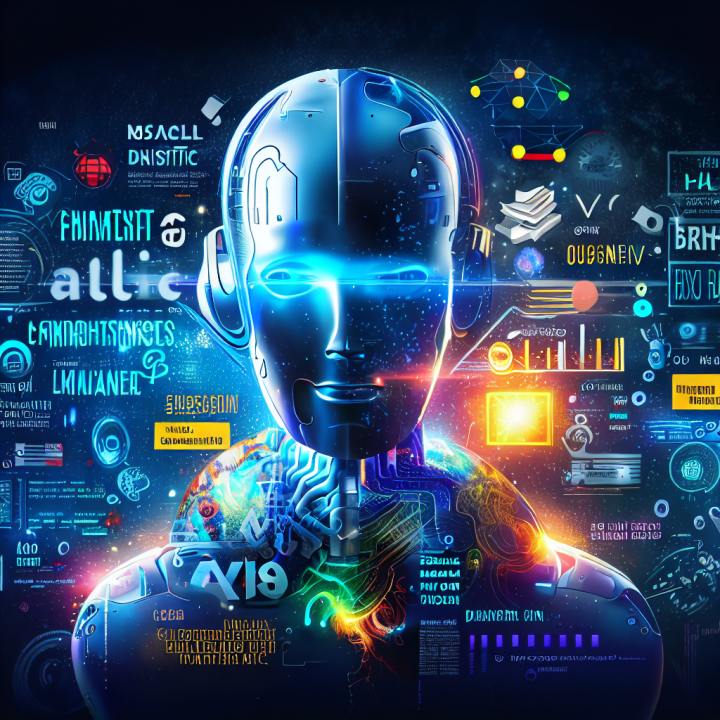
How AI in Marketing is Transforming the Industry
Artificial intelligence in marketing is not just a buzzword; it’s a powerful tool that’s changing the landscape. Here’s how:
Personalized Customer Experiences
Artificial intelligence in marketing analyzes customer data to deliver highly personalized content and recommendations. Ever wondered how Netflix knows what you want to watch next? That’s Artificial intelligence in marketing in action.
Automated Customer Service
Chatbots powered by Artificial intelligence in marketing can handle customer inquiries around the clock, providing instant responses and freeing up human agents for more complex tasks.
Enhanced Content Creation
Artificial intelligence in marketing can generate content based on data and trends. Tools like GPT-3 can write articles, create ad copy, and even draft social media posts.
Improved Ad Targeting
Artificial intelligence in marketing analyzes user behavior to deliver ads that are more likely to convert. It helps marketers target the right audience at the right time.
Benefits of Using AI in Marketing
Using Artificial intelligence in marketing offers numerous benefits:
Increased Efficiency
Artificial intelligence in marketing automates routine tasks, allowing marketers to focus on strategic planning and creative endeavors.
Better ROI
By targeting the right audience and personalizing experiences, Artificial intelligence in marketing ensures a higher return on investment.
Data-Driven Decisions
Artificial intelligence in marketing provides valuable insights that help marketers make informed decisions based on data rather than intuition.
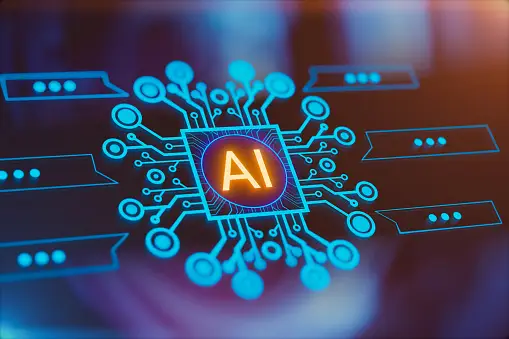
Challenges of Implementing AI in Marketing
Artificial intelligence in marketing provides valuable insights that help marketers make informed decisions based on data rather than intuition.
Challenges of Implementing AI in Marketing
Despite its benefits, implementing Artificial intelligencein marketing comes with challenges:
Data Privacy Concerns
Collecting and using customer data can raise privacy issues. Marketers must ensure they comply with regulations like GDPR when using Artificial intelligence in marketing.
High Costs
Developing and implementing Artificial intelligence in marketing technologies can be expensive. Small businesses may find it challenging to invest in Artificial intelligence in marketing.
Integration Issues
Integrating AI in marketing with existing systems can be complex and require significant technical expertise.
How to Get Started with AI in Marketing
Ready to dive into Artificial intelligence in marketing? Here’s a step-by-step guide:
1. Define Your Goals
Clearly define what you want to achieve with Artificial intelligence in marketing. Do you want to improve customer service, enhance personalization, or optimize ad targeting?
2. Choose the Right Tools
Select Artificial intelligence in marketing tools that align with your goals. Some popular options include Salesforce Einstein, IBM Watson, and Google AI.
3. Gather and Analyze Data
Collect data from various sources and analyze it to gain insights into customer behavior and preferences using Artificial intelligence in marketing.
4. Implement and Test
Implement Artificial intelligence in marketing technologies in small increments and test their effectiveness. Adjust your strategy based on the results.
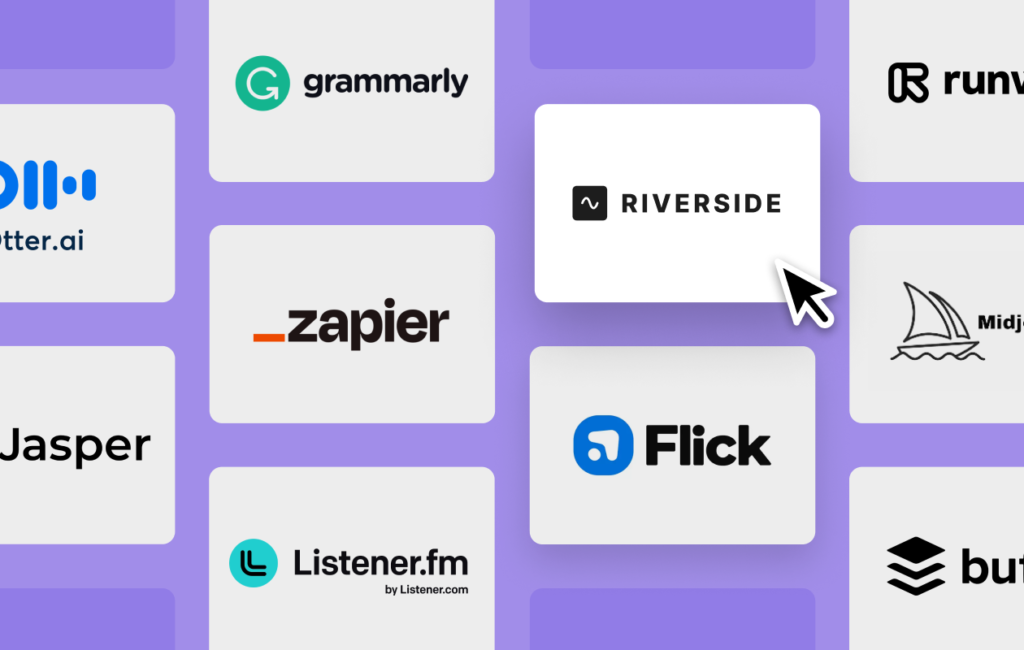
AI Tools for Marketers
Several Artificial intelligence in marketing tools can help marketers achieve their goals. Here are a few to consider:
HubSpot
HubSpot offers AI-powered tools for marketing automation, lead scoring, and customer insights—key features of Artificial intelligence in marketing.
Google Analytics
Google Analytics uses Artificial intelligence in marketing to provide detailed insights into website traffic and user behavior.
Hootsuite Insights
Hootsuite Insights uses Artificial intelligence in marketing to analyze social media trends and sentiment, helping marketers refine their social strategies.
Case Studies: AI in Marketing in Action
Let’s look at a couple of case studies where Artificial intelligence in marketing has made a significant impact:
Netflix
Netflix uses Artificial intelligencein marketing algorithms to recommend shows and movies based on user preferences, significantly enhancing user engagement and satisfaction.
Sephora
Sephora uses Artificial intelligence in marketing to offer personalized product recommendations and virtual try-on experiences, improving customer satisfaction and sales.
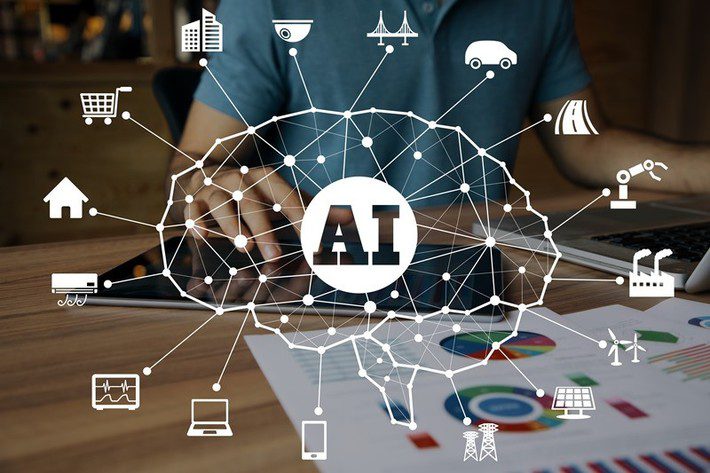
Future Trends in Artificial intelligence in Marketing
Artificial intelligence in marketing is constantly evolving. Here are some future trends to watch:
Voice Search Optimization
With the rise of voice assistants like Alexa and Siri, optimizing for voice search is becoming crucial—a new frontier for AI in marketing.
Augmented Reality (AR)
AI-powered AR is revolutionizing the way consumers shop online, offering virtual try-ons and immersive experiences—a perfect blend of AI in marketing and technology.
AI-Driven Content Creation
AI in marketing will continue to advance in content creation, making it possible to generate highly personalized and engaging content at scale.
Conclusion
The future of marketing is undoubtedly intertwined with AI in marketing. As AI technologies continue to evolve, they will provide marketers with unprecedented tools to understand, engage, and delight their customers. By embracing AI in marketing, you can stay ahead of the curve and drive your marketing efforts to new heights.
How can AI in marketing improve my marketing strategy?
AI in marketing can enhance your strategy by providing personalized experiences, automating tasks, and offering valuable insights into customer behavior.
Is AI in marketing suitable for small businesses?
While AI in marketing can be expensive, there are affordable tools available that cater to small businesses, helping them stay competitive.
What are some common AI in marketing tools for marketers?
Common AI in marketing tools include HubSpot for marketing automation, Google Analytics for data insights, and Hootsuite Insights for social media analysis.
How does AI in marketing help with customer service?
AI in marketing-powered chatbots and virtual assistants provides 24/7 customer support, handles inquiries, and improves overall customer satisfaction.
What are the future trends in AI in marketing?
Toggle ContentFuture trends in AI in marketing include voice search optimization, augmented reality experiences, and advanced AI-driven content creation.